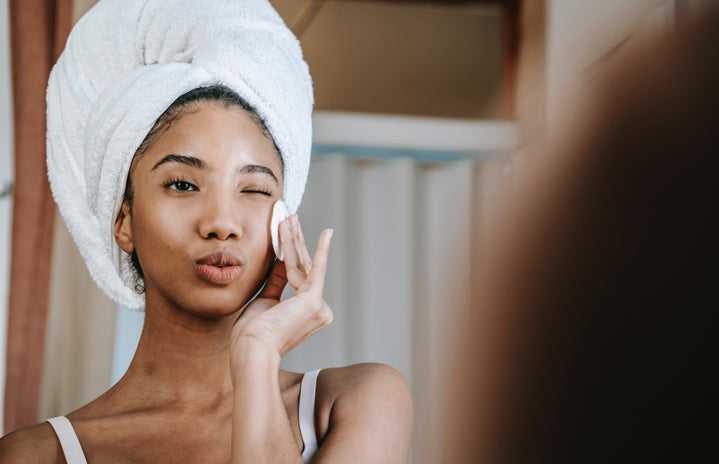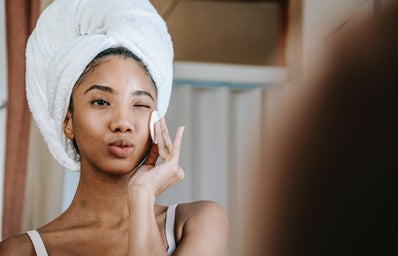If you are reading this article, odds are you are just as passionate about skincare as I am. It is great for the health of your skin, and it is a nice way of self-love, too. Each type of skin has its specificities and that reflects on the skincare routine.
We talked to the dermatologist Camila Caitano about skincare for black skin. She explained everything you need to know about it and also gave some amazing tips!
Specificities of black skin
The differences between white and black skin go further than just the color. Skin shade is due to its amount of melanin on the epidermis (the most external layer of the skin). Caitano explains that “melanin is a brown-shaded pigment that, beyond coloring the skin, hair and eyes, also protects the organism from damaging effects of the ultra-violet (UV) radiation present in the sunrays”. The more sun exposure one gets, the more melanin they will produce.
Black skin has more melanin than white skin, so it is naturally more protected from the sun. Consequently, it tends to age slower than lighter skins. Black skins have denser collagen fibers, which make them firmer, softer and with less wrinkles (everything one can wish for!).
But that doesn’t mean the sun can’t cause problems to this type of skin – its most common harm is the occurrence of stains called dyscrhomias, which, as Caitano says, are more frequent in black skin. The dermatologist explains that, although darker skin has a natural sun protection factor of 13,4, it also needs sunscreen. “It is important to use a 30 SPF sunscreen daily, in order to prevent burning, stains and even skin cancer”, tells Caitano.
Skincare routine
It is really important to have a skincare routine that fits your skin type. Caitano says that most black skins are oily, but they can also be dry or hybrid. That being said, the dermatologist gives a few skincare tips for black skin. Check it out!
1. Wash your face in the morning and at night to fight oiliness. After that, use an astringent tonic for oily skin, or micellar solution for normal dry and skin.
2. At night, after cleaning, use acids – such as retinoic or glycolic – in order to stimulate cellular renewal. It will improve the texture of your skin, as well as close your pores and enlighten your skin. Combine it with salicylic acid to control oiliness and acne.
3. Vitamin C is great to prevent and lighten stains. It also has an antioxidant action that helps to delay aging.
4. Moisturize! It helps to strengthen the cutaneous barrier and prevents aging. If you have oily skin, use a light-textured, mate-actioned moisturizer.
5. If you have stains, use lightening products, such as azelaic and mandelic acids. Be careful with hydroquinone – this substance is a powerful lightener, but, if used without medical assistance, may lead to the appearance of white stains.
6. Use a fluid-textured SPF 30 sunscreen daily. That will keep your skin from being whitish and will help you to treat and prevent stains, as well as prevent aging and skin cancer.
Aesthetic procedures
Since black skin tends to be oily, peelings and lasers are indicated. But you should do it with a competent professional, because, in case of complications, such as burnings, black skin has a higher risk of developing scars and stains. Botulinum toxin may also be an option, but black skin usually needs it later than white skin, since it ages slower.
As we saw, black skin has some particularities that have to be observed before you plan your skincare routine. Hopefully, this article will help you reach the skin of your dreams!
—————————————————————-
The article above was edited by Karen Oliveira.
Liked this type of content? Check Her Campus Casper Libero home page for more!




